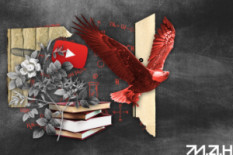Our conversation focused on her personal experience of escaping from war, seeking refuge, the path to integration into new communities, and efforts to rebuild her professional career, which, as Julia's experience proves, can help other Ukrainian women abroad rediscover themselves and find their place in a new environment.
How long have you been in Switzerland?
I've been in Geneva since October of last year. On the first day, I finally caught myself thinking or feeling, "That's it! I have finally arrived. I am in my place." These words resonated with me. Before that, I had lived in many places and several countries, but none had the same effect on me. Over time, I became more and more confident of this feeling.
How is the process of integration going for you?
I can say that I almost don't feel like a stranger here anymore. Despite not speaking French and not having many contacts with the locals, I feel almost at home now. I have many familiar and beloved places, communities, acquaintances, friends from Ukraine and representatives of other friendly countries. I understand French well when it's spoken, but I still can't speak or read it.
How do you deal with resistance to learning the language? Or, in general, how do you approach language learning?
I'll speak purely from my personal experience: throughout my journey, it's essential to listen to yourself and what opens up to you at every step with your heart and soul. I've often been told that I should have started learning the language immediately for integration. But I've never regretted not enrolling in language courses from day one. I decided to focus on English as it is more necessary for my work. I probably wouldn't have fully experienced this journey if I had followed the advice. And now I see that everything has fallen into place as it should. At that time, learning the language was not a compulsory requirement when we arrived. So I kept postponing it for "tomorrow or the day after." But now it's an obligation, and there's "no turning back," as they say. However, circumstances do influence us. But sometimes, even under the same conditions, for example, coming to the same organization and asking the same questions, two people may receive different answers. That's what happened to me and my friend. So, even under clear rules, as in Switzerland or elsewhere, it's crucial to listen to yourself and make your own choices. I always tell people seeking advice to listen to themselves and follow their path.
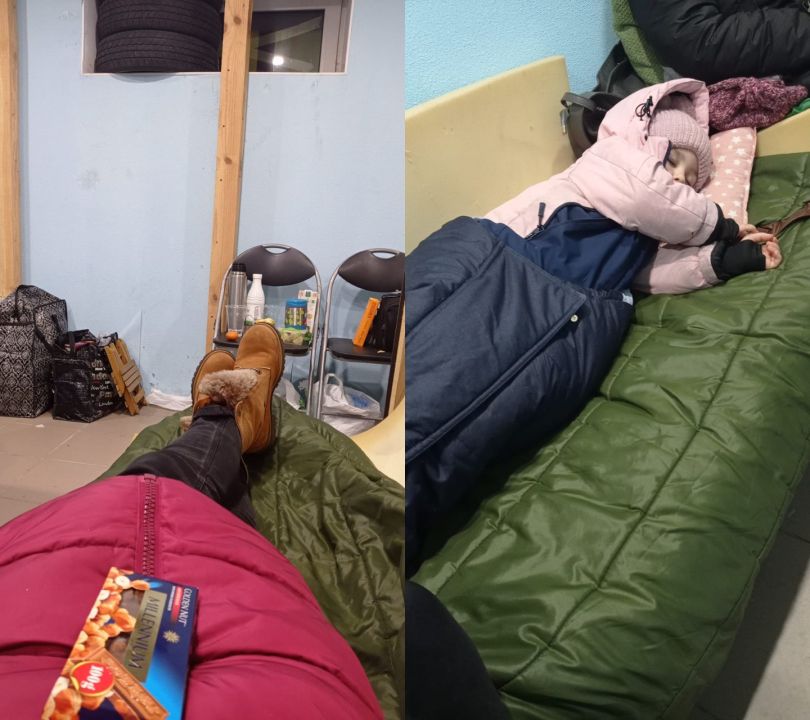
Did you leave Ukraine at the very beginning of the war?
We stayed at home for a week from the start of the war. My mother was in Gostomel, and everything that could fly went there on the first day of the war. Thanks to the efforts of my former husband, for which I am very grateful, we managed to evacuate her just before they closed the city quickly. Then we lived near Kyiv. It wasn't safe and very noisy because there was a military unit across the road where something was always happening. We constantly ran with our little daughter to the basement. It was challenging for the nervous system. Besides, I had undergone surgery a few days before. So, we decided that we needed to go to western Ukraine. On March 1st, the three generations of women left for Lviv, grandmother, mother, and daughter. We stayed there for two weeks and then decided to go further. On the day we were leaving Lviv, rockets landed there. It was a sign to me that our decision was correct. We went to Poland and then to Mallorca, where distant relatives of my husband welcomed us. But from the first steps on the island, I felt that I couldn't live there. It's a beautiful place to relax and see all this beauty, but living and working there is impossible.
So, I started looking for other options. Eventually, Italy opened up to us: acquaintances of acquaintances were looking for a family that they could help and host. The family's host is from Kharkiv and wholeheartedly supports Ukraine. He is a very kind and decent person. We got to know each other remotely and went to them. It was challenging for us because it's hard to describe how difficult it is to leave everything behind and "go into the arms" of strangers, especially for the receiving party. But wherever we were, whatever happened, we met good people who helped us. Most often, they were complete strangers. I am very grateful to each of them. I remember and appreciate them. You are wonderful people!
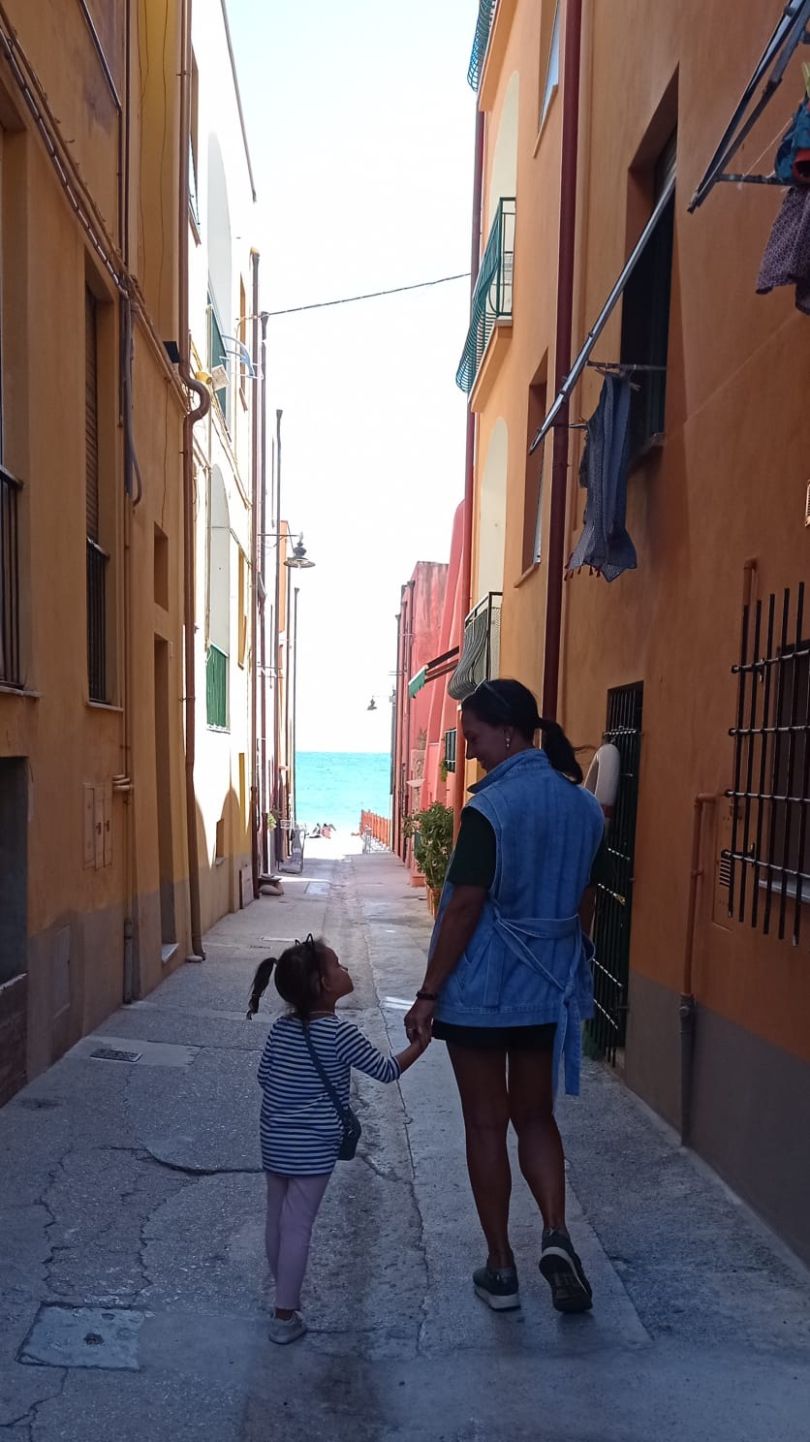
Later, we settled a bit further south in Italy, in a refuge for Ukrainians by the sea, where there were many Ukrainian women with children. We stayed there for almost five months. My daughter, who was 3.5 years old then, had difficulty coping with all these changes. She was just getting used to a place when we had to move again... In Italy, she had a significant protest against other-language-speaking children! It was very psychologically challenging, and it was hard to see that, knowing I couldn't change anything. But since we found ourselves in a Ukrainian environment and by the sea, which is very distracting, she gradually calmed down and got used to the differences. And when we finally came to Switzerland, she took everything very calmly. Now, she attends a French-speaking preparatory school, where she's the only Ukrainian and doesn't speak French yet, but she takes everything well as if she's communicating in one language. She adapted quickly.
So, your daughter essentially confirmed that Switzerland is suitable for you.
Yes, indeed, probably that's the case. You know, in these last few days, I feel very nostalgic for Ukraine; I desperately want to go home. But living there is scary, and the fear that at any moment something can happen, running with my daughter to the shelter, risking our lives... So, for now, we're not going back.
Did you join Ukrainian communities in Switzerland? Do you have your circle of communication?
Yes, I did. And it helped a lot. A powerful Ukrainian community is here, such as the powerful volunteer organization Ukraїner Reborn. They provide a lot of support at various levels. They find excellent teachers and psychologists for different courses and create various support events for Ukrainians. There are choreography classes, physical practices, developmental training, and multiple activities for adults and children. Currently, they have organized a summer camp for children.
In winter, I was one of the teachers at their center, where I taught a course on styling and kinetics. This experience solidified my belief that my work is essential for women today. It is especially relevant now! It's crucial for a woman to feel like a woman again because many people become closed off due to these trials. They get stuck in today's problems and the victim mentality. This state... when you feel like a refugee, almost like a beggar, somehow defective, it's easy to slip into it. It may be a helpful practice for women not used to asking for something. Sometimes it's useful for me, too, in certain situations. It's worth trying to find the valuable side of this skill, but one should not linger in this state.
As for my circle of communication, I have made friends now. Mostly, they are Ukrainians who have been in Switzerland for a long time. They are part of the community that helps with integration because they know more about how everything works here. I can turn to them for advice and assistance.
Regarding professional realization, considering that with the beginning of the war, my work essentially stopped, projects were suspended or closed, and even regular clients were lost, I didn't know what I could do abroad to earn a living.
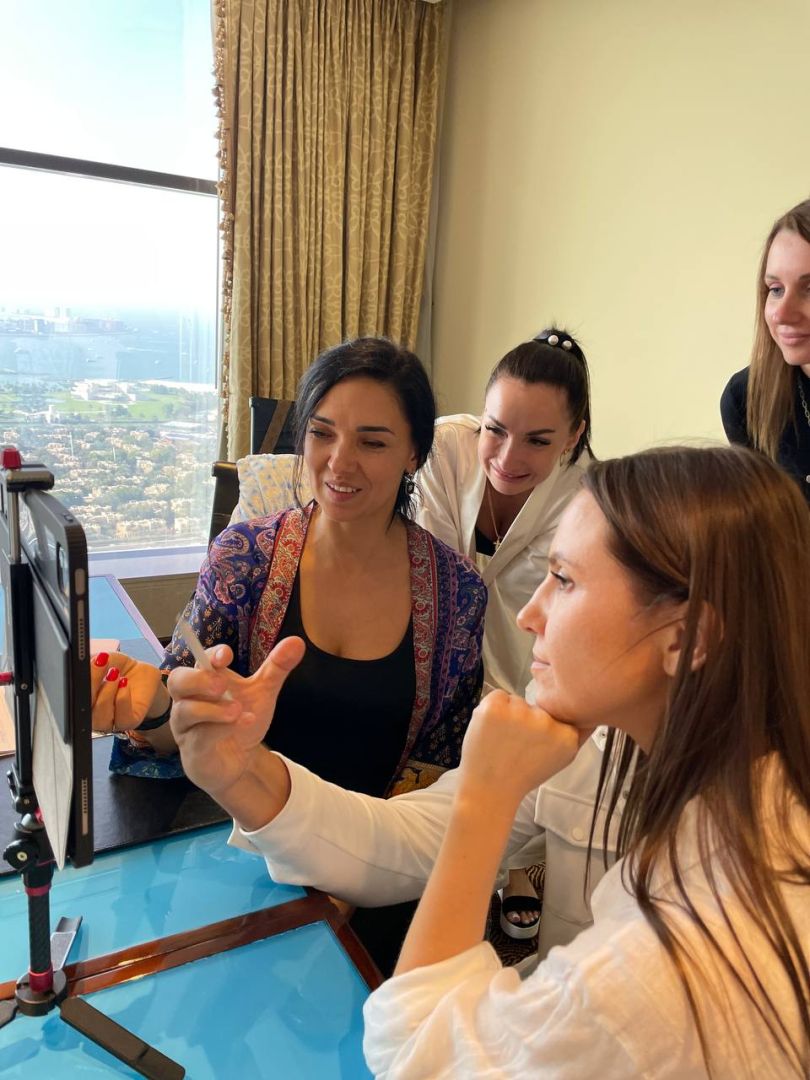
How did you cope with this void when everything ended professionally?
Now I think that my ability to adapt quickly to changes helped me. I've moved several times throughout my life, so I know what it's like. Everything is much more complicated for someone who has never done it, especially if they are deeply attached to their home, belongings, and familiar environment. Then a huge void is formed. Such people are more likely to return to Ukraine, even to the most dangerous places now.
But I believe that our home is, first of all, within ourselves. I realized this from the first days of being abroad. You can attach yourself to the walls as much as you want, but they won't feel like home if we are not in harmony with ourselves and don't have a sense of home within us.
It also helped me to perceive all the circumstances not as difficulties but as a new experience. Doing what you can in specific cases. For example, not saying, "I am a stylist. I won't do something like that," but taking any opportunity because you don't know what tomorrow will bring. In Italy, I even got to work as an assistant to a chef. It was an interesting experience, but I don't want it anymore.
The important thing is not to get stuck in these temporary states and statuses, not to lose yourself completely, but to keep developing and searching. It's crucial to live in line with the times but always keep a finger on the pulse - who am I, where do I want to go, what do I want?
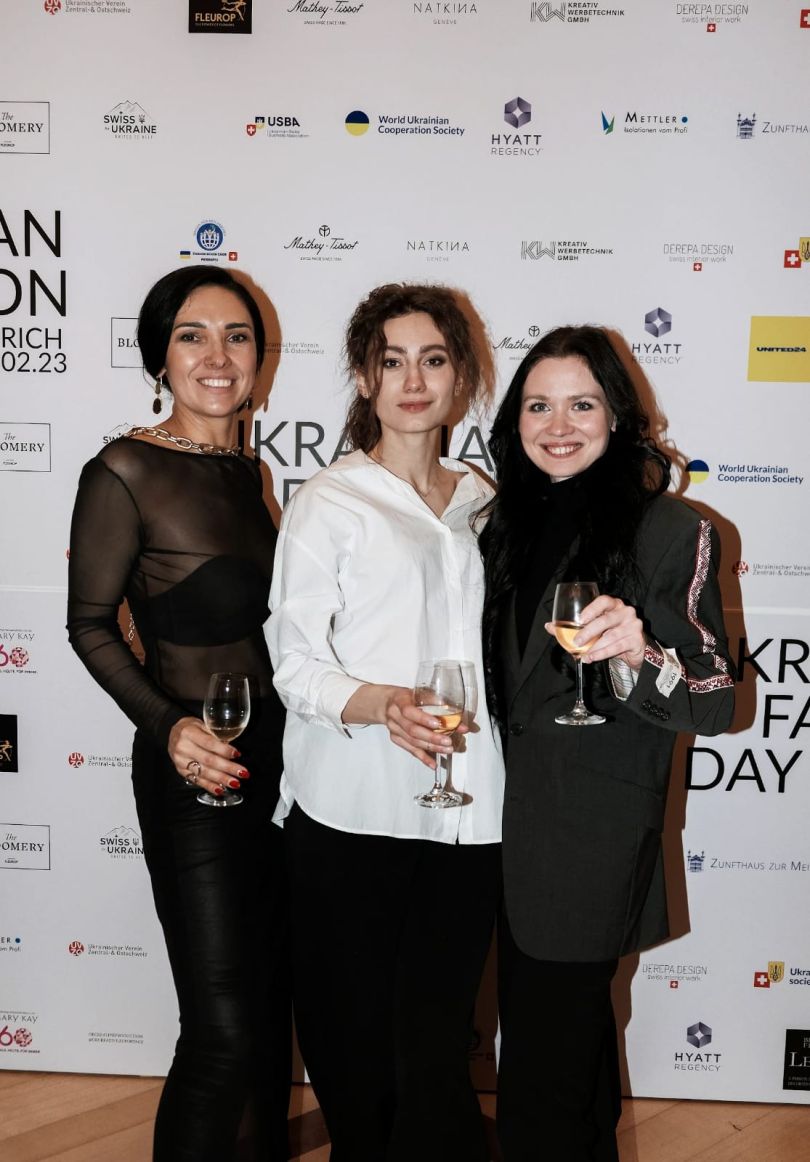
Is everything slowly falling into place in Switzerland?
Yes, the environment responded immediately. People started recommending me to each other. Almost immediately, I was invited as the main stylist to a fashion show of Ukrainian designers in Zurich. It's my element, my work, and it was wonderful! Of course, everything was on a volunteer basis, but we all worked wholeheartedly - hungry for professional fulfillment. Then, I had a styling course in Geneva, and the first clients appeared. They were Ukrainian and Russian-speaking girls from Kazakhstan, Uzbekistan, Turkmenistan, Belarus, Moldova... Most people have been living here for a long time.
I am also stepping into the online space. In Ukraine, I didn't need to advertise or manage a professional Instagram page because people recommended me by word of mouth. But now I understand that I need to reach out, so to speak, to the world. It's another direction for my development.
And, of course, I want to work with locals and communicate with them. But for now, there is a language barrier, so I am learning the language.
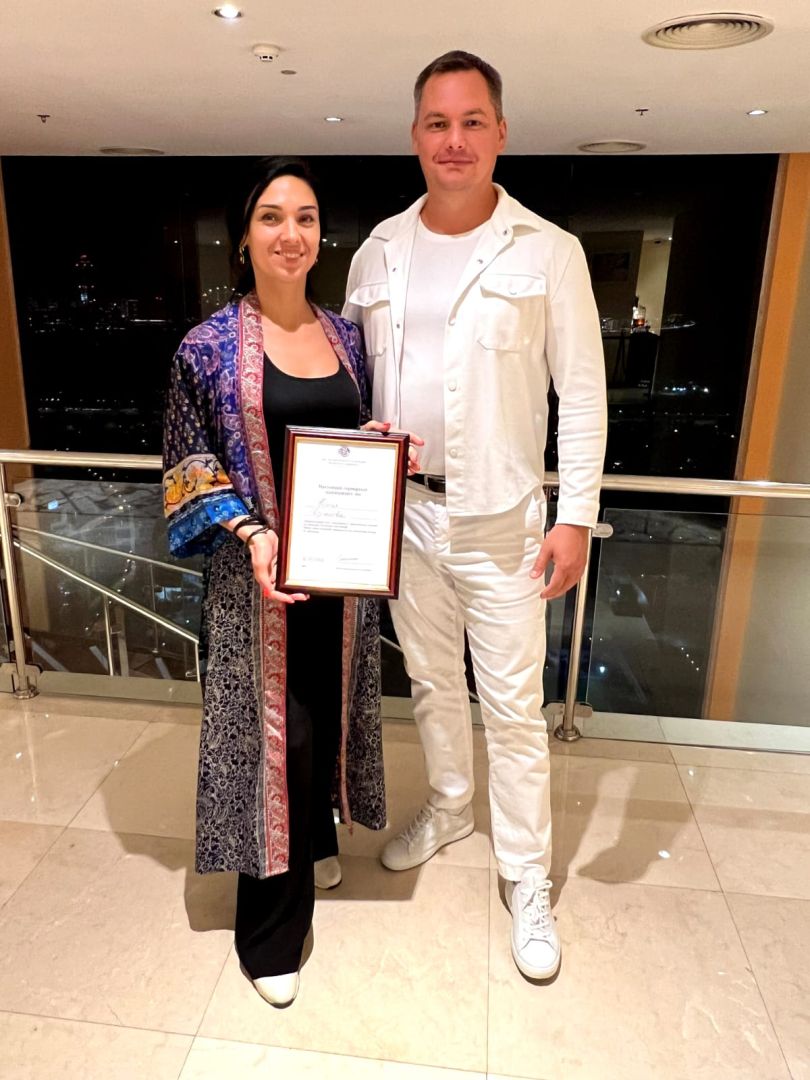
Tell me about the directions for your work. Let's start with the new one - kinetics.
This has been my passion for a long time. I've been interested in people's movements and gestures since childhood. I have been interested in the topic of non-verbal communication since my youth, but I never imagined that there could be a professional school in this direction. Last year, I started to learn about kinetics, and this year I completed the school and received a diploma. I even traveled to Dubai for it. This direction is very important to me because I realized that kinetics can often help faster than styling. It usually comes first. Of course, there are situations where you need to dress up first. But body language will reveal our internal state, even if we are well-dressed. Habits - those that have been with us all along and those that formed during the past one and a half years - will be manifested and read. For example, if we fall into a victim state, our body will reflect that. Whether we want it or not, it will show. And so, the environment will read it. Then, all processes become difficult, and all changes happen slower and more complex.
Imagine a person going for a job interview in a victim state. Even if they smile, their fundamental internal state will still be visible. Because if you stay in this state for a long time, it becomes "embedded" in the body. And the employer, having read it, will instead prefer a more liberated, lighter, and open person who looks at the world differently.
Or, for example, women may transmit in relationships or while seeking relationships the message: "I am not worthy of this," and it will repel. Or, on the contrary, attract an abuser who will highlight these problems.
In essence, kinetics deals with highlighting the problem, seeing it, realizing it, and initiating changes in the body, which also affects life. I see how the girls who went through my course on styling and kinetics are changing. They left a lot of feedback, which is publicly available. It's very gratifying and shows that this work is essential and needed. I am, in fact, the first ambassador of kinetics in both Ukraine and Switzerland, so there is a vast space for development.
What impressed you the most during these courses?
A few women, and there were 14-15 participants in my course, said that they don't have a mirror at home and don't want one. Can you imagine how these girls didn't accept themselves? What a state it was! But by the end of the classes, each said, "That's it! I need a mirror. Where is the best place to look for one?" This is a significant result for me. They started to like themselves again! They saw themselves as beautiful and worthy again!
In general, we had three sessions on styling and one on kinetics. So you can achieve relatively fast results. For a woman, it is vital to feel like a woman, no matter where she is or what happens to her. To be "delicious," primarily for herself!
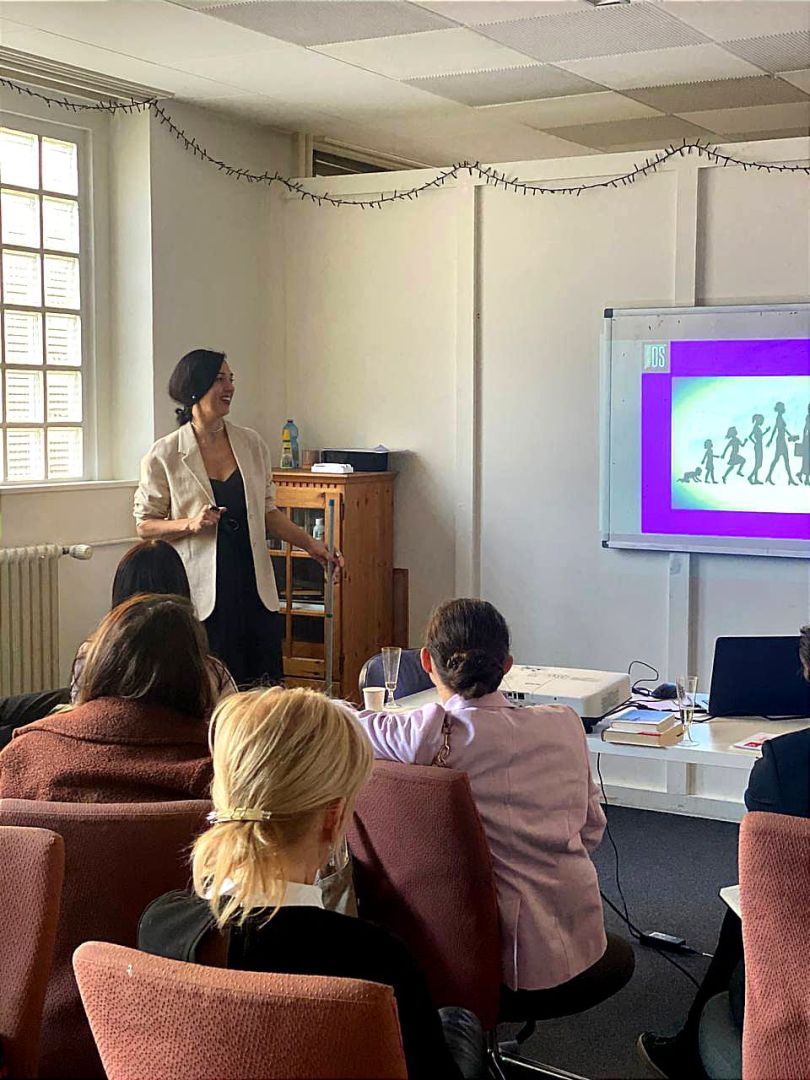
And what do you think is changing in Switzerland due to the large number of Ukrainians?
It is already a well-known fact that Europe, looking at us and our children, gradually concludes that Ukrainians are highly developed. In the majority, we strive to achieve something, learn, design, and work.
By the way, another stereotype is changing. Many Swiss men used to have a prejudice that all Slavic women come abroad to marry locals and live off their husbands.
Nowadays, women are coming with children, and many families want to reunite with their husbands. They have different priorities. They are active in learning something, finding their place, earning a living, and providing a future for their children, rather than living off social assistance. They are not trying to seduce someone for this purpose. It's about dignity, self-worth, and standards. Of course, there are different women, but mostly, they are like this. And this changes the views of Europeans.
Children are a particular category. I personally heard that local teachers highly praise our children because they learn quickly, grasp the material, and are more diligent and motivated. Initially, the teachers expected it to take at least a year for Ukrainian students to adapt, but unexpectedly, they did it quickly and reached the same level as the locals. This all instills pride in our nation.
So, it seems the mission of Ukrainian women with children is now to change perceptions about Ukraine.
Whether it's a mission or not, it naturally happens, and society sees it.
It will probably contribute to Ukraine's integration into the global community.
Yes. The locals are actively becoming interested in what kind of country Ukraine is. Previously, many didn't even know where it was located. And now Europeans know that intelligent and worthy people live in Ukraine. They are surprised that Kyiv is a large, beautiful, and developed city. They are already planning to visit it after the victory. And the boldest ones are already traveling to Ukraine. Most likely, a real tourist boom awaits us. I hope so.
Do you plan to return? Or will you see how things go?
Well, we'll see... Of course, I really want to. I cannot erase Ukraine from my life. It's my homeland! I will come back, but we'll see how circumstances play out. I worry that the conflict between those who left and those who stayed might cause, for example, bullying for a child. I wouldn't want any more stress for her. We'll see.
As someone currently in Kyiv, it may seem somewhat turbulent on social media, but in real life, things don't seem that way, at least not in my surroundings.
I hope that Ukrainians will be kinder to each other. And everything will be sorted out. But overall, I would like Ukrainians to have what many Swiss have - a desire to support, friendliness, understanding, and unity. Each of us goes through our challenging path, wherever it may be. And respect for each other's choices and ways is very important now and in the future. I really wish to see and feel this in my own country one day!
